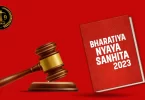Q. Whether the courts can provide protection to an employer if he is not in a position to carry on his normal activities due to obstructions caused by the union workers?
Ans. Since every person has in law the remedy of self-help to remove unlawful and illegal obstructions to his lawful activities and therefore, the police shall have the power and obligation when required to assist an employer in removing the obstruction and stopping the unlawful acts.1 It is no doubt for the police at site and not for the Court to decide when and how to exercise the powers. Normal mandamus could not be issued to direct the police to act in a particular manner. Notwithstanding that in certain circumstances, the court can and shall indicate on valuation of the facts placed before it that the time has come for the police to exercise its powers but not the mode and manner of its exercise.2 While admitting a writ of mandamus, the High Court directed the police to give assistance to the employer for free egress and ingress of his property without any obstruction by any manner whatsoever.3 In a petition by an employer seeking police protection for removal of goods, the High Court can issue directions to the police for compliance since the courts are duty bound to give such protection in the public interest.4 An employer is entitled to police protection in case of strike and obstruction by the workers’ union obstructing and preventing ingress and egress of men and material.5
The petitioner is the manager of a hotel at Kayamkulam. It is a three-star hotel with an attached bar. Respondent Nos. 7 to 12, who were employees of the said hotel, voluntarily retired from service but after nearly 4 months thereafter, they started agitation under the leadership of respondent No. 13. Since the agitation became violent and the agitators started using force and deadly weapons, the petitioner applied to respondent Nos. 4 to 6 for police protection. But they declined to provide police protection on the ground that it was a labour dispute and that without the court’s direction, they would not interfere. Hence the petitioner approached the High Court for police protection.
In the counter-affidavit filed on behalf of the respondent, it was stated that on 3-8-2012, there was a surprise verification of the hotel establishment and the petitioner required some workers to be kept out of the hotel for the time being. On the next day the petitioner informed respondent No. 12 that his services were not required. The Union took up the issue and the District Labour Officer informed the petitioner that respondent Nos. 7 to 12 were entitled for reinstatement. It was stated that the strike was peaceful and that the petitioner had agreed to pay compensation but refused to take back the workers in service.
In the light of these facts, the High Court disposed of the petition in terms of interim order with a direction that protection will be given to the petitioner as and when required.
References:
1. Raghunathan v. Dy. Supdt. of Police, 1987 Lab & IC 1384.
2. K.C.P. Ltd. v. Inspector of Police, 1991 LLR 77 (Mad HC).
3. Pentasia Chemical Ltd. v. The Secretary Pentasia Pattali Thozhil Sangam, 1993 LLR 247 (Mad HC).
4. Simpson & Group of Companies Workers’ and Staff Union v. Amco Batteries Ltd., 1992 (I) LLJ 226: 1992 Lab IC 414 (Mad HC).
5. Avtec Limited, Power Products Division Poonapally, Hosur v. Superintendent of Police, Krishnagiri District, 2009 LLR 62 (Mad HC).
6. Girish Kurup v. State of Kerala, 2013 LIC 335 (Ker HC).





